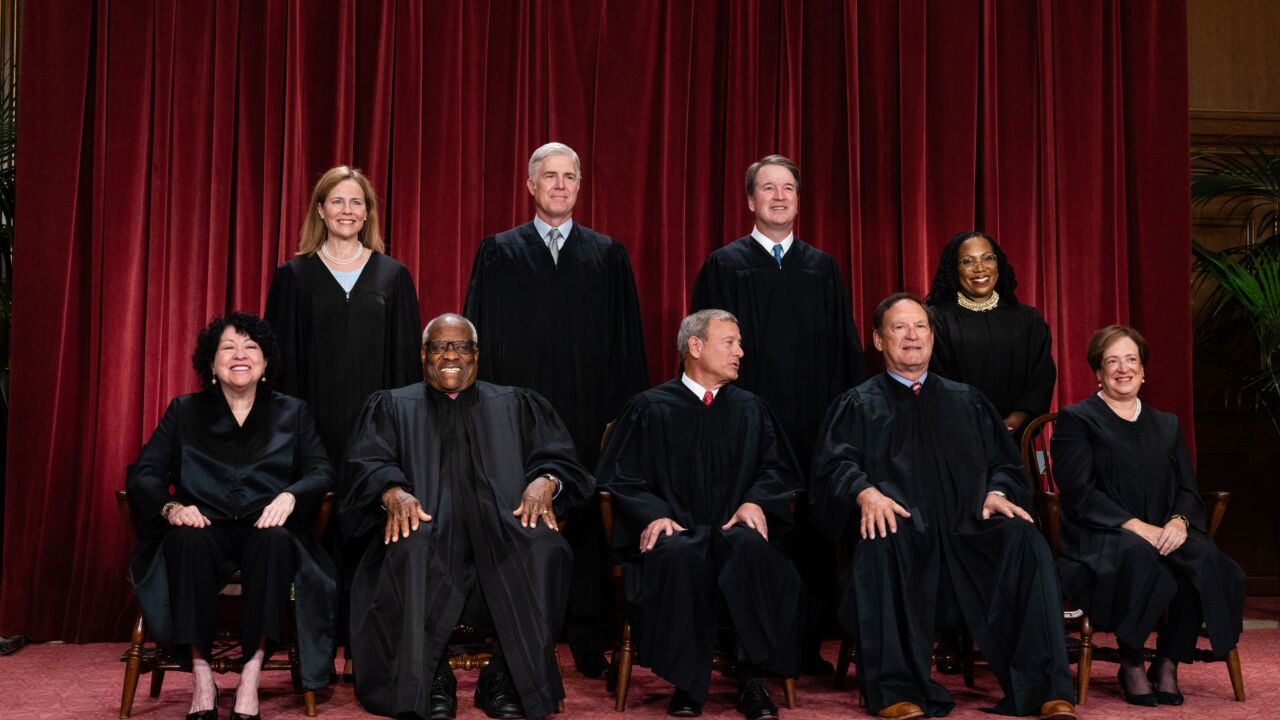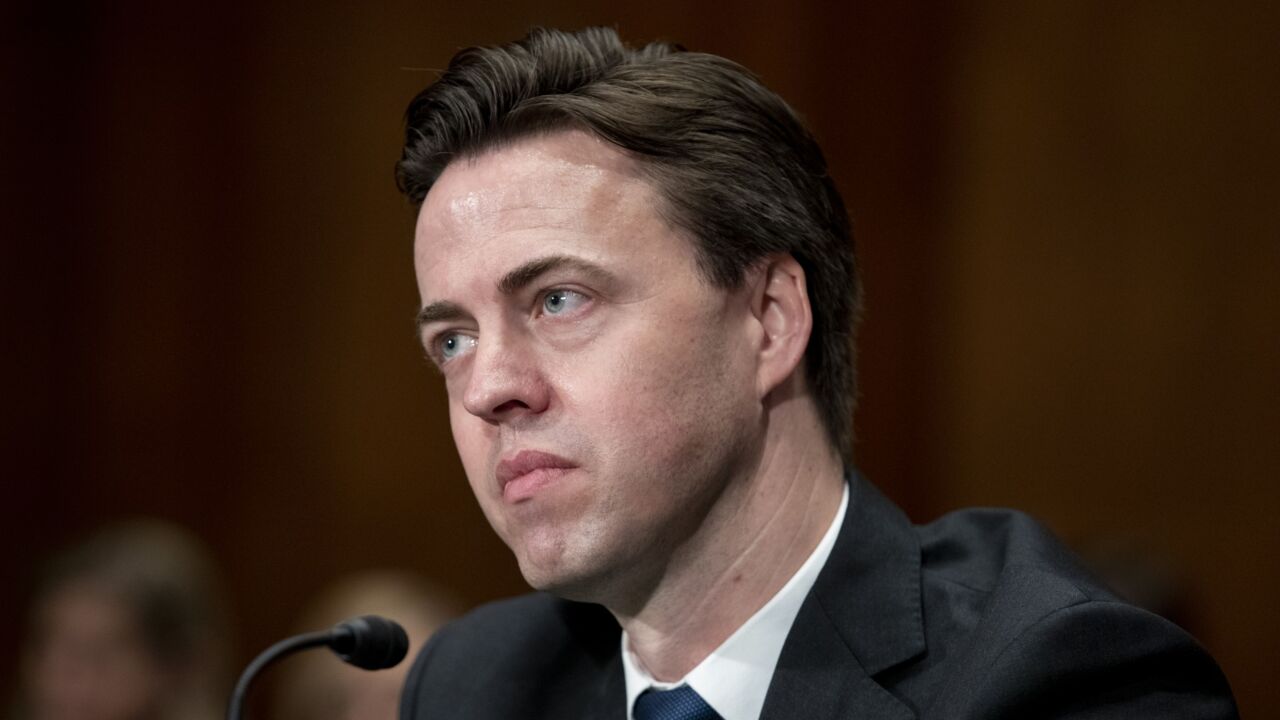-
Over 70 loans were allegedly sent to competitors by the independent mortgage banker, a suit filed by UWM alleges.
January 30 -
By overturning so-called "Chevron deference," the Supreme Court could compel lawmakers to be less ambiguous in their legislative language, limiting agencies' interpretative power.
January 18 -
The Supreme Court will hear oral arguments in two cases seeking to overturn the legal principle known as "Chevron deference," that could usher in a new era of litigation by corporations against government agencies.
January 16 -
A coalition of financial trade groups issued a joint comment letter asserting that the federal bank regulators' proposed capital rule lacked justification and evidence required by the Administrative Procedure Act, threatening legal action if regulators don't delay and significantly amend the rule.
January 12 -
The Justice Department and the Consumer Financial Protection Bureau are suing a real estate developer over an alleged bait-and-switch land-sale scheme near Houston. The developer used TikTok and other social media sites to lure Hispanic immigrants into predatory loans, the government alleges.
December 20 -
Banks and dissenting policymakers have raised the possibility of challenging regulators' Community Reinvestment Act overhaul in court, but it remains unclear whether they intend to walk the walk.
October 25 -
In a case challenging the funding of the Consumer Financial Protection Bureau, justices across the political spectrum questioned where — and whether — the Constitution placed limits on Congress' power to delegate funding for federal agencies outside of annual appropriations.
October 3 -
The head of the Consumer Financial Protection Bureau defended the agency and its mortgage rules in particular on the 15th anniversary of the collapse of Lehman Brothers.
September 12 -
A district court judge ruled that Congress did not give the Consumer Financial Protection Bureau broad authority to look for discrimination, putting a major dent into the bureau's efforts to apply anti-discrimination principles to non-lending products such as advertising.
September 10 -
The settlement resolves allegations dating to 2014 and covers 85 minority employees who alleged they were paid lower wages than their white counterparts and faced retaliation.
September 6 -
Two related cases the Supreme Court is considering hing on whether state laws preempt the National Banking Act on the payment of interest on mortgage escrow accounts.
August 31 -
A Texas judge dealt the Consumer Financial Protection Bureau a setback that has changed the bureau's calculus for furthering its near-term agenda. But an ambitious Supreme Court could also call all of the bureau's final rules into question.
August 4 -
In an amicus brief submitted to the Supreme Court Tuesday, the bicameral group of 132 Republican members of Congress argued that an appeals court was right to rule last year that the Bureau's funding system is unlawful.
July 11 -
A challenge to the SEC's use of administrative law judges could have big implications for bank regulators. The FDIC, Fed, OCC and CFPB could be forced to go to federal court in cases that would otherwise be handled in-house.
July 5 -
The Consumer Financial Protection Bureau issued only 20 enforcement actions in 2022, but some observers say the enforcement numbers belie the results that director Rohit Chopra is getting from other ways of holding companies accountable.
June 5 -
A federal appeals court ruled in favor of the Consumer Financial Protection Bureau, setting up a court split ahead of a highly anticipated Supreme Court hearing in October. The Fifth Circuit previously ruled that the agency's funding mechanism violates the Constitution's separation of powers doctrine.
March 23 -
Consumer Financial Protection Bureau Director Rohit Chopra says the bureau is continuing with its enforcement agenda and that financial firms face risks from the Supreme Court case.
February 28 -
The Consumer Financial Protection Bureau has asked the high court to overrule a lower-court decision that threatens its funding structure. The justices didn't accept the case on Tuesday, but experts say it could still make the cut in the coming week.
February 21 -
The bank's delay in investigating the case forced the plaintiff to resign from the bank in July 2021, according to the complaint. Wells said that it takes allegations of misconduct "very seriously."
February 8 -
Townstone Financial in Chicago had been accused of discriminating against certain consumers by trying to discourage them from applying for home loans. However, a judge ruled that federal law protects only actual applicants.
February 6

















